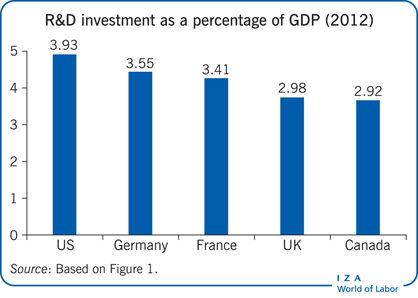Elevator pitch
Globalization brings both good and bad job news. The bad news is that jobs will be outsourced from high-cost developed countries into lower-cost locations as soon as the associated economic activity becomes mechanized and predictable. The good news is that globalization creates opportunities that can be realized by people bold enough to transform new ideas and knowledge into innovations. In that way, entrepreneurs will play a vital role in creating the jobs of the future by transforming ideas and knowledge into new products and services, which will be the competitive advantage of the advanced economies.

Key findings
Pros
Innovative activity is the result of investments in new knowledge, such as human capital, research and development (R&D), and creativity.
There are positive correlations between R&D investment and innovation performance and between R&D investment and productivity.
Knowledge investments exploit the opportunities of globalization through their spillover potential, creating innovations geographically close to the source of the new ideas.
Innovation bestows competitive advantage in the globalized economy and has the potential to become an engine of future growth.
Cons
Investments in new knowledge do not automatically generate innovative activity and new jobs, but require conduits for the spillover of knowledge to innovative activities.
The spillover propensity for investments in knowledge is strongly influenced by contextual factors, such as institutions specific to an industry, region, or country.
Knowledge investments in human capital, creativity, and R&D can be appropriated only to the extent that knowledge spillovers can be exploited to generate innovations, employment, and growth.